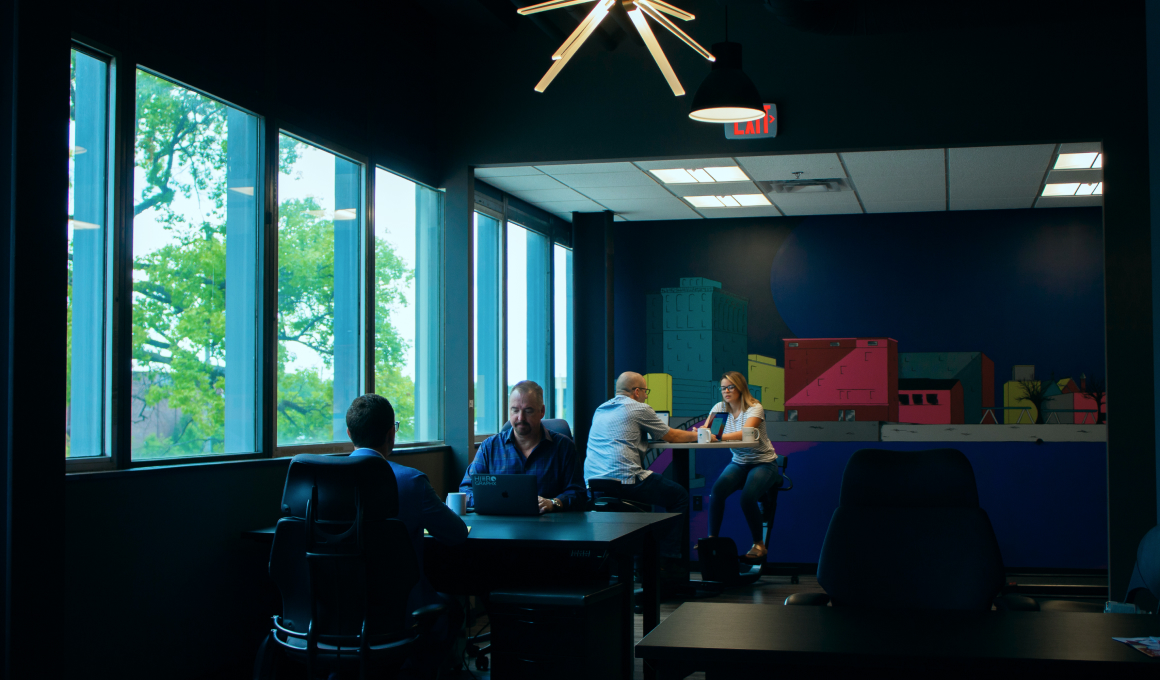


The digital marketing world frequently discusses the roles of Pay-Per-Click (PPC) advertising and Search Engine Optimization (SEO). Debaters often question whether these strategies compete or integrate effectively. As a premier website design company in Michigan, Hierographx is at the forefront of navigating these digital marketing strategies to maximize online visibility and engagement for our clients.
At present, PPC and SEO serve distinct but complementary roles in digital marketing strategies. SEO focuses on optimizing website content to rank higher in organic search results. It's a long-term strategy that builds credibility and drives consistent traffic over time. On the other hand, PPC offers immediate visibility and targets specific demographics or search queries through paid ads.
The notion that PPC and SEO are in competition stems from the misconception that marketing budgets are zero-sum and that investment in one necessarily detracts from the other. However, this viewpoint is increasingly outdated. The trend towards integrating PPC and SEO strategies as two sides of the same coin is gaining momentum.
Integrating PPC and SEO strategies can offer numerous benefits, including:
Enhanced Visibility: Running PPC campaigns alongside SEO efforts can dominate the search engine results pages (SERPs), increasing overall visibility.
Valuable Keyword Data: PPC campaigns provide immediate feedback on keyword effectiveness, which can inform SEO strategies and content creation.
A/B Testing Insights: PPC ads allow for rapid A/B testing of headlines, calls to action, and landing pages. The insights gained can improve SEO content and user experience on a website designed by Michigan website design experts like Hierographx.
Holistic Marketing Approach: Integration leads to a more cohesive online presence, ensuring that messaging and branding are consistent across paid and organic search results.
Understanding the intricacies of consumer behavior online is paramount for the effective integration of PPC and SEO. This goes beyond mere keyword targeting and ad placements. By analyzing how users interact with both paid and organic search results, businesses can tailor their content strategies to better meet the needs and intentions of their audience.
For businesses targeting specific geographic regions, the synergy between local SEO and geotargeted PPC campaigns can be particularly powerful. Local SEO strategies, such as optimizing for "near me" searches and claiming Google My Business listings, are crucial for attracting organic local traffic. When combined with PPC campaigns that use location targeting and local ad extensions, businesses can significantly increase their visibility to local customers.
Advances in artificial intelligence and machine learning are expected to deepen the integration between PPC and SEO looking ahead. These technologies will enhance the ability to analyze data from both PPC and SEO, leading to more sophisticated and targeted marketing strategies. Furthermore, as search engines evolve, they may begin to reward synergies between PPC and SEO with higher overall visibility in search results.
Incorporating the latest trends and technology advancements into PPC and SEO strategies is essential for staying ahead in the competitive digital marketing landscape. As technology evolves, so do the opportunities for innovative PPC and SEO integration.
The advent of new technologies such as voice search, artificial intelligence (AI) and machine learning (ML) is reshaping the way we approach PPC and SEO. Voice search optimization, for instance, requires a different set of keywords that are more conversational in nature, often posing a challenge for traditional PPC keyword strategies. However, by leveraging AI and ML algorithms, marketers can predict and adapt to these changes more efficiently, ensuring that PPC and SEO strategies remain aligned and effective.
AI and ML not only aid in keyword optimization but also in personalizing user experiences. Personalized ad campaigns, driven by AI's ability to analyze vast amounts of data, can significantly improve the relevance and effectiveness of PPC ads. Similarly, SEO can benefit from AI's insights by creating content that is more aligned with user intent, resulting in higher organic search rankings.
As the digital landscape continues to shift, Hierographx remains committed to leveraging both PPC and SEO to craft holistic and effective marketing strategies. Our approach is to use the strengths of each to complement the other, rather than choosing one over the other. By staying ahead of industry trends and focusing on integration, we help our clients achieve their digital marketing goals, enhancing their online presence through expert website design in Michigan and beyond.
The future of PPC and SEO lies not in competition, but in their potential for integration. By adopting a strategy that leverages the strengths of both, businesses can achieve a more dynamic, visible and effective online presence. As we move forward, the key to success will be the ability to adapt to the changing digital marketing environment, embracing both PPC and SEO as integral components of a comprehensive digital strategy.
